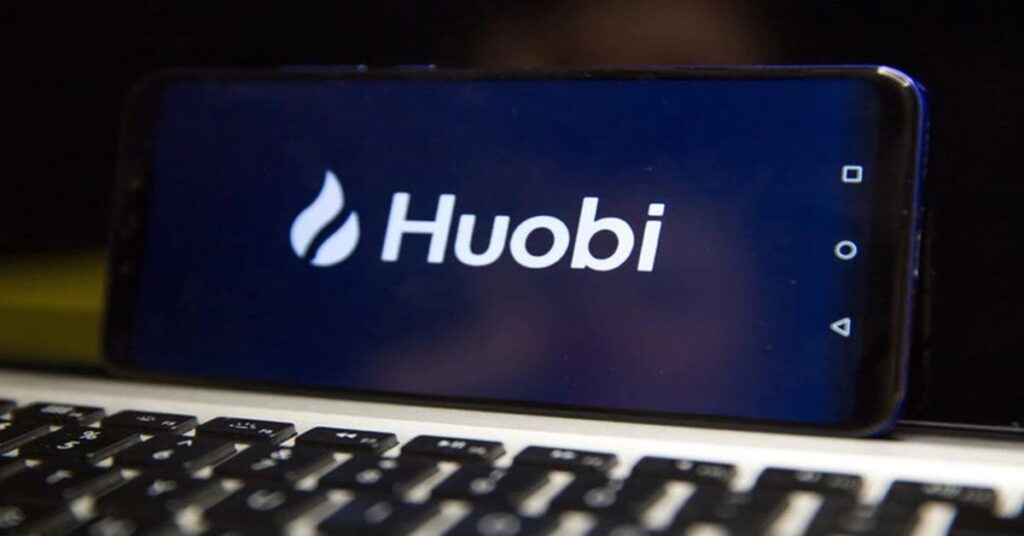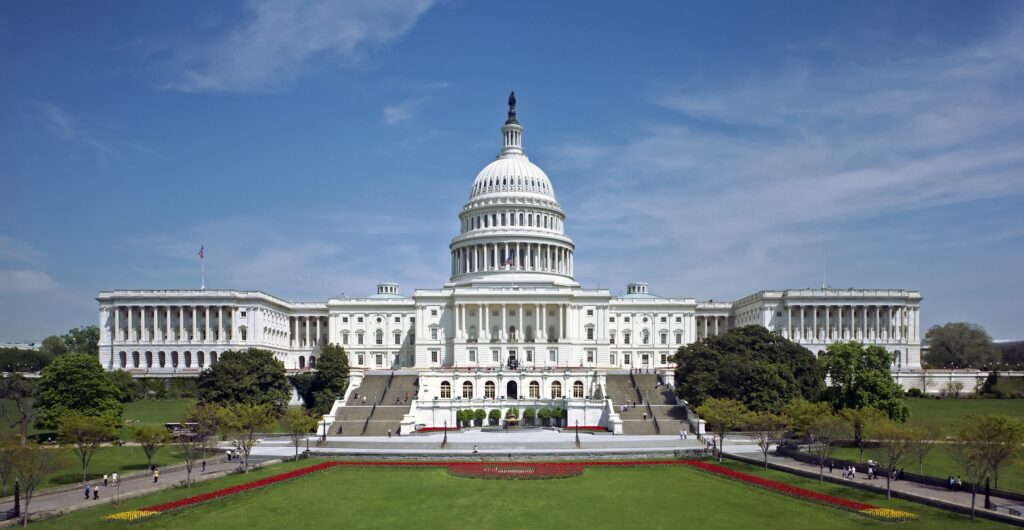Banks that accept deposits from cryptocurrency companies should be aware of increased liquidity risks, particularly if firms are highly interconnected with other digital asset businesses, said Michael Barr, the Federal Reserve’s vice chair of supervision, in a speech on Wednesday.
Barr said the Fed is working with the Office of the Comptroller of the Currency and the Federal Deposit Insurance Corp to highlight the risks to banks of concentrating their deposits in the crypto industry, warning that banks could experience deposit fluctuations linked to price swings in the broader crypto market.
“The recent volatility in crypto markets has demonstrated the extent of centralization and interconnectedness among crypto-asset companies, which contributes to amplified stress,” he said.
“While banks were not directly exposed to losses from these events, these episodes have highlighted potential risks for banking organizations.”
Speaking at DC Fintech Week, Barr said the banking regulators’ engagement with financial institutions on the risks of accepting deposits from crypto firms is “not intended to discourage banks from providing access” to banking services for crypto companies, but instead on making sure that any risks are appropriately mitigated.
Barr’s comments mark his first full remarks on cryptocurrency and fintech since taking the top regulatory post at the Fed in July. In the speech, Barr said regulators need to balance supporting innovation while providing guardrails that protect consumers and guard against systemic risks.
Barr also warned that crypto companies making misrepresentations about deposit insurance can confuse customers, and may lead to increased withdrawals at crypto-aligned banks that provide such services during periods of heightened stress.
Those comments follow action the FDIC took in August in which it ordered crypto exchange FTX, along with several other crypto firms, to halt what it called “false and misleading” claims an FTX official had made about whether funds at the company are insured by the government.
Blockchain.com, a cryptocurrency exchange backed by investors including Lightspeed Venture Partners, said on Wednesday it had received approval from Singapore’s central bank to offer payment services in the city-state.
The announcement came a day after crypto giant, Coinbase, said it had also received the same approval. This brings the number of crypto companies allowed to operate in Singapore to 18, out of the roughly 180 firms who have applied for a crypto payments licence as of January this year.
Blockchain.com, which was valued at $14 billion in March, said in a statement that it views Singapore as an attractive location to grow its institutional customers and team. Half of its business comes from institutions and its retail business has 84 million wallet holders from 200 countries, it said.
Singapore’s welcoming approach has helped the financial hub attract digital asset services-related firms from China, India and elsewhere in the last few years, making it a major centre in Asia.
However, crypto players have seen the value of their holdings drop after this year’s collapse of crypto fund Three Arrows Capital and cryptocurrencies Luna and TerraUSD, as well as a steady stream of cyber robberies.
Crypto investment products firm 21.co said on Wednesday its subsidiary 21Shares AG has listed a bitcoin exchange-traded product on Nasdaq Dubai, making it the Middle East’s first physically-backed bitcoin ETP.
The 21Shares Bitcoin ETP trades, under the ticker ABTC, in the same way as the 21Shares Bitcoin ETP in Europe, 21.co said in a statement.
Dubai has ambitions to become a global cryptocurrency hub and has attracted big industry players to set up shop like Binance, which went on a UAE hiring spree this year and is helping to shape the Middle East commercial hub’s virtual assets regulations.
Following the Dubai listing, 21Shares has 46 listed products in seven countries, 21.co added.
Swiss-based 21.co last month raised $25 million in a funding round that valued it at $2 billion, which it said made it “Switzerland’s largest crypto unicorn”.
The crypto market has suffered a rout that has forced some of its biggest players to lay off thousands of employees to cut costs.
But Sherif El-Haddad, appointed 21Shares head of Middle East in August, was upbeat, saying cryptocurrencies were “fast becoming the asset of the future for investors and wealth managers around the world”.
The Middle East and North Africa is the world’s fastest-growing cryptocurrency region, where the volume of crypto received jumped 48% in the year to June, blockchain researcher Chainalysis said in a report last week.
Hany Rashwan, CEO and co-founder of 21Shares, said in the statement the company “will continue to support the Middle East’s ambitions to become a global crypto hub”.
Coinbase, the largest crypto exchange in the United States, said it has received approval from Singapore’s central bank to offer payment services in the city-state.
The in-principle approval, which the central bank started giving out to crypto firms last year, means individuals and institutions can use digital payment token services and the firms are regulated by the central bank under its Payment Services Act.
Calling it a “significant milestone”, Coinbase said in a statement that it has been building up its presence in Singapore and currently had nearly 100 employees in the Southeast Asian state, with product engineers forming the largest bulk of hires.
“We see Singapore as a strategic market and a global hub for Web3 innovation,” said Hassan Ahmed, Coinbase’s regional director for Southeast Asia.
About 180 crypto companies applied for a crypto payments licence to the Monetary Authority of Singapore in 2020 under a new regime. Singapore has handed out 17 in-principle approvals and licences after an elaborate due diligence process that is still ongoing.
Besides Coinbase, Crypto.com and DBS Vickers – the brokerage run by Singapore’s largest bank DBS (DBSM.SI) – are among those that have received licences.
Singapore’s welcoming approach has helped the financial hub attract digital asset services-related firms from China, India and elsewhere in the last few years, making it a major centre in Asia.
However, there have also been quite a few cases of crypto fall-outs taking place in the city state. Singapore-based crypto hedge fund Three Arrows Capital began liquidation in June after it was unable to meet hundreds of millions of dollars in obligations.
The hedge fund had taken a hit from the collapse of cryptocurrencies Luna and TerraUSD in May. Both coins were developed by Terraform Labs, which was incorporated in Singapore. Terraform Lab’s founder Do Kwon is currently wanted by the South Korean police.
The chief of the MAS has, however, sought to distance Singapore from these firms and said in July that companies like Three Arrows and Terraform Labs were “so-called Singapore-based” firms that had “little to do” with the city state’s crypto regulations.
Singapore plans to roll out new regulations that will make it more difficult for retail investors to trade cryptocurrencies.
Cryptocurrency exchange Huobi Global said its founder had agreed to sell his controlling stake in the China-based company to buyout firm About Capital Management (HK) Co.
Upon completion of the transaction, the buyout vehicle of About Capital will control the majority stake of Huobi founder Leon Li, Huobi said in a statement on Friday.
The transaction involves only the change of controlling shareholder and has no impact on Huobi’s core operation and business management team, the company said.
The cryptocurrency industry has seen sharp declines this year amid a broader risk-off sentiment in the markets due to geopolitical turmoil, aggressive monetary policy tightening and decades-high inflation.
Li was exploring the sale of his almost 60% stake, people familiar with the matter had told Reuters in August. That month competitor FTX’s CEO Sam Bankman-Fried said that he had no plan to buy Huobi.
Huobi exited from China in December last year and closed off all mainland China user accounts.
A blockchain linked to Binance, the world’s largest crypto exchange, has been hit by a $570 million hack, a Binance spokesperson said on Friday, the latest in a series of hacks to hit the crypto sector this year.
Binance CEO Changpeng Zhao said in a tweet that tokens were stolen from a blockchain “bridge” used in the BNB Chain, known until February as Binance Smart Chain.
Blockchain bridges are tools used to transfer cryptocurrencies between different applications. Criminals have increasingly targeted them, with some $2 billion stolen in 13 different hacks, mostly this year, researcher Chainalysis said in August.
The hackers stole around $100 million worth of crypto, Zhao said in his tweet. BNB Chain later said in a blog post that a total of 2 million of the BNB cryptocurrency – worth around $570 million – was withdrawn by the hacker.
The majority of the BNB remained in the hacker’s digital wallet address, while about $100 million worth was “unrecovered,” the Binance spokesperson said by email.
BNB Chain supports BNB, formerly known as Binance Coin, which is the world’s fifth-largest token with a market value of over $45 billion, according to data site CoinGecko.
Elliptic, a London-based crypto blockchain researcher, told Reuters that the hacker had minted 2 million new BNB tokens before transferring most of the funds to other cryptocurrencies including Tether and USD Coin.
BNB Chain suspended its blockchain for several hours before resuming at around 0630 GMT, it said in a tweet.
BNB Chain was “able to stop the incident from spreading” by contacting the blockchain’s “validators,” – entities or individuals who verify blockchain transactions, it said in its blog post. There are 44 validators across several different time zones, it added without elaborating.
BNB Chain, described by Binance as a “community-driven, open-sourced and decentralized ecosystem,” said it would introduce a new “governance mechanism” to counter future hacks, as well as expand the number of validators.
In March, hackers stole around $615 million from a blockchain bridge called Ronin Bridge, in one of the largest crypto heists on record, linked by the United States to North Korean hackers.
The Middle East and North Africa are the world’s fastest-growing cryptocurrency markets, with the volume of crypto received in the region jumping 48% in the year to June, blockchain researcher Chainalysis said in a report on Wednesday.
While the MENA region is one of the smallest crypto markets, its growth to $566 billion received in cryptocurrency between July 2021 and June 2022 shows adoption is rising rapidly.
Latin America saw the second biggest growth in the same period, at 40%. North America was next at 36% growth, followed closely by Central and Southern Asia and Oceania at 35% growth, Chainalysis said.
Three MENA countries are among the top 30 in Chainalysis’ 2022 Global Crypto Adoption Index, with Turkey in 12th place, Egypt taking the 14th spot and Morocco 24th.
“In Turkey and Egypt, fluctuating cryptocurrency prices have coincided with rapid fiat (traditional) currency devaluations, strengthening the appeal of crypto for savings preservation,” Chainalysis said.
The Turkish lira has weakened nearly 30% this year to new record-lows, after losing 44% of its value last year amid a currency crisis triggered by rate cuts.
Turkey tops the MENA region in terms of value of crypto received by far, having received $192 billion worth of crypto in the year to end-June, though only saw 10.5% year-on-year growth.
Egypt’s currency has also lost about a quarter of its value against the dollar at the start of the year.
“Remittance payments account for about 8% of Egypt’s GDP, and the country’s national bank has already begun a project to build a crypto-based remittance corridor between Egypt and the UAE, where many Egyptian natives work,” Chainalysis said.
The six countries of the Gulf Cooperation Council “seldom make it to the top of our grassroots crypto adoption index, as it weighs countries by purchasing power parity per capita, which favours poorer nations,” Chainalysis said.
“Nevertheless, their role in the crypto ecosystem should not be underestimated. Saudi Arabia, for example, is the third-largest crypto market in all of MENA, and UAE is fifth.”
Afghanistan, which was 20th in Chainalysis’ adoption index last year, has tumbled to the bottom of the list as Taliban authorities have “equated crypto to gambling,” which is forbidden in Islam, Chainalysis said.
From November 2021 to now, Afghanistan-based users received less than $80,000 in crypto a month on average from $68 million a month on average before the Taliban’s takeover, Chainalysis said.
The Financial Stability Oversight Council (FSOC), a U.S. regulatory panel comprising top financial regulators, on Monday recommended that Congress pass legislation addressing risks digital assets pose to the financial system, including bills to bolster oversight of crypto spot markets and stablecoins.
In a report following U.S. President Joe Biden’s executive order this year “on Ensuring Responsible Development of Digital Assets,” the panel identified three gaps in the regulation of cryptocurrencies: limited oversight of the spot market for tokens that are not securities; opportunities for regulatory arbitrage, or taking advantage of favorable rules; and whether crypto firms should be allowed to integrate multiple services traditionally provided by intermediaries, like broker-dealers and clearing houses.
The report was published after an FSOC meeting on Monday.
In a statement, Treasury Secretary Janet Yellen said the report “provides a strong foundation for policymakers as we work to mitigate the financial stability risks of digital assets while realizing the potential benefits of innovation.
Although FSOC has previously urged Congress to regulate issuers of stablecoins like banks, Monday’s report included several new recommendations for legislators, including that they create a federal framework for stablecoin issuers to address market integrity and consumer protection.
FSOC’s report follows a slate of others that were released last month in connection with the White House’s executive order. In September, the Biden administration published a series of reports recommending that U.S. government agencies double down on digital asset sector enforcement and identify holes in regulation.
It remains unclear when Congress might pass crypto-related legislation, although several bills have been introduced to address stablecoins and digital commodities regulation.
The FSOC report also suggested Congress pass a bill to provide rulemaking authority to federal financial regulators over the spot market for cryptocurrencies that are not securities, in order to address conflicts of interest and abusive trading practices.
Lawmakers should also consider legislation that gives regulators authority to supervise activities of crypto firms’ affiliates and subsidiaries, which FSOC said could address regulatory arbitrage, the report said.
Trading volumes between the British pound and the cryptocurrency bitcoin spiked to a record high after sterling dropped on Monday, according to market data firm Kaiko Research, in what analysts said was likely a rush by investors to dump their sterling for the digital asset or profit from arbitrage.
The pound fell to a record low against the dollar on Monday, having plunged the previous Friday after the UK government announced unfunded tax cuts.
The volume of transactions in the bitcoin-sterling trading pair across eight major exchanges globally spiked to a record high of 846 million pounds ($920 million) on Monday, according to Kaiko Research, compared with an average of around 54.1 million pounds a day so far in 2022.
The surge was likely due to traders swapping sterling for bitcoin, said James Butterfill, head of research at crypto firm CoinShares.
“There is a high correlation to bitcoin volume growth and political/monetary instability,” he said.
Butterfill said spikes have previously occurred in other currencies’ crypto trading volumes, such as the Russian ruble and Ukrainian hryvnia, but that he had never seen such big moves in the bitcoin-sterling pair’s volume.
Conor Ryder, research analyst at Kaiko, said the data suggests cryptocurrency markets reacted to the volatility in fiat currencies. When sterling crashed on Sept. 26, “opportunistic investors rushed to crypto exchanges offering BTC-GBP to try and profit via arbitrage from any mispricing of bitcoin across the major fiat currencies,” he said in emailed comments.
Follow Crypto Intelligence on Google News to never miss a story
Bankrupt crypto lender Celsius Network said on Friday it is not seeking to enforce payment obligations for outstanding loans during its Chapter 11 proceedings and that borrowers do not need to repay such loans.
New Jersey-based Celsius said no interest or penalties will be assessed post loan maturity, in a filing at the U.S. Bankruptcy Court for Southern District of New York.
Celsius filed for bankruptcy in July, with estimated assets and liabilities between $1 billion to $10 billion, with more than 100,000 creditors.
The lender also listed a $1.19 billion deficit on its balance sheet and had about 23,000 outstanding loans to retail borrowers totaling $411 million backed by collateral with a market value of $765.5 million in digital assets, as of July 13 this year.
Follow Crypto Intelligence on Google News to never miss a story













